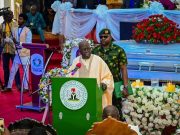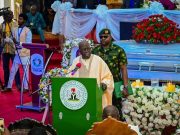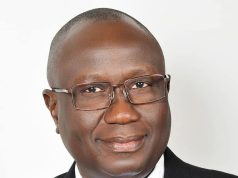The Nigerian Senate has once again found itself at the center of a growing scandal—one that raises serious concerns about democracy, free speech, and the protection of whistleblowers in the country. Former Senator Shehu Sani’s shocking revelation that he was nearly suspended for exposing lawmakers’ salaries in 2018 has reignited an ongoing debate: How far will the Nigerian political elite go to keep their secrets buried?
Shehu Sani’s Close Call: The Price of Truth
Shehu Sani, a former senator known for his fearless approach to governance, recently disclosed that he narrowly avoided a six-month suspension from the Senate after revealing the ₦13.5 million monthly running costs and ₦200 million annual constituency fund allocated to each senator.
In a post on 𝕏, Sani revealed that only the “divine intervention” of then Senate President Bukola Saraki and his deputy Ike Ekweremadu saved him from punishment. His colleagues, enraged by his decision to expose the shocking figures, had planned to silence him just as they have done to others.
But Sani’s warning is even more alarming:
“If you are there and you blow the whistle too loudly, you will be on your own.”
This chilling statement confirms a pattern of intimidation and suppression within the Senate. And Shehu Sani is not the only victim.
🔇 The Senate’s Weapon of Choice: Suspension as a Tool for Suppression
The Nigerian Senate has mastered the art of using suspension as a political weapon. Whenever a senator exposes corruption or challenges the system, they suddenly find themselves facing disciplinary action.
The latest victim? Senator Natasha Akpoti-Uduaghan.
The Kogi Central senator was suspended for six months after an altercation with Senate President Godswill Akpabio on February 20. But her suspension wasn’t just about that incident. In a shocking interview on Arise TV, Senator Natasha alleged that her real “crime” was rejecting sexual advances from Akpabio.
Could it be that Nigeria’s Senate is not just a corrupt boys’ club but also an institution where women who refuse to play along are kicked out?
📜 A History of Silencing Truth-Tellers
Shehu Sani and Natasha Akpoti-Uduaghan are not the first lawmakers to face Senate persecution. A deeper dive into history shows a consistent pattern of silencing those who dare to expose the truth.
🚨 1. Ali Ndume (2017)
Senator Ali Ndume was suspended for calling for an investigation into allegations against then Senate President Bukola Saraki and Senator Dino Melaye. His suspension lasted six months—the same punishment Natasha is now facing.
🛑 2. Ovie Omo-Agege (2018)
Senator Ovie Omo-Agege was suspended for criticizing a proposed bill that sought to reorder elections in a way that could benefit certain politicians. His suspension was later overturned by the court, but the message was clear: Speak against the system, and you will pay the price.
💸 3. Abdulmumin Jibrin (2016)
As a member of the House of Representatives, Abdulmumin Jibrin was suspended after exposing budget padding worth billions of naira. He was forced into exile, fearing for his life, and was only reinstated after strong public pressure.
🕵🏽♂ The Hidden Hand: Who is Behind These Suspensions?
Many believe that these suspensions are not just the work of the Senate leadership but are also backed by powerful forces in the executive and judiciary. The Nigerian political system thrives on secrecy, and those who reveal too much are considered threats to national stability—or rather, threats to those in power.
In Shehu Sani’s case, the Senate was desperate to keep Nigerians in the dark about how public funds are spent. In Natasha’s case, her refusal to submit to sexual advances became a reason to remove her from office.
If these events continue unchecked, it is clear that Nigeria’s democracy is under siege.
📢 The People’s Verdict: Nigerians React
As news of Shehu Sani’s revelation spreads, Nigerians have taken to social media to express their anger and frustration.
💬 @Chinedu_NG: “So they don’t want us to know how much they are stealing? Shame on this government.”
💬 @Ifeanyi_J: “Natasha, Shehu Sani, Omo-Agege, Ndume… How many more will be sacrificed before we wake up?”
💬 @MariamO: “They are eating our money and still punishing those who speak up. Nigeria is not a democracy. It’s a dictatorship with elections.”
⚠ Can This Trend Be Stopped? The Fight for Transparency
🔎 The big question remains: How do we stop this culture of secrecy and suppression? Nigeria cannot afford a system where whistleblowers are punished while corruption thrives. The Senate’s unchecked power must be challenged, and the people must demand transparency.
💡 Possible solutions:
✔ Whistleblower Protection Laws – Nigeria must enact and enforce strict laws that protect those who expose corruption.
✔ Public Pressure & Protests – Nigerians must demand accountability through protests, petitions, and social activism.
✔ Media Exposure – Independent media like Morgan Freeman Blog must continue exposing these hidden truths.
🚀 Join the Movement! Expose the Truth!
This is not just news—this is a call to action. The fight for transparency in Nigeria’s government is one that affects every citizen.
*What do you think about Shehu Sani’s revelation? Do you believe whistleblowers will ever be safe in Nigeria? Drop your thoughts in the comments!























